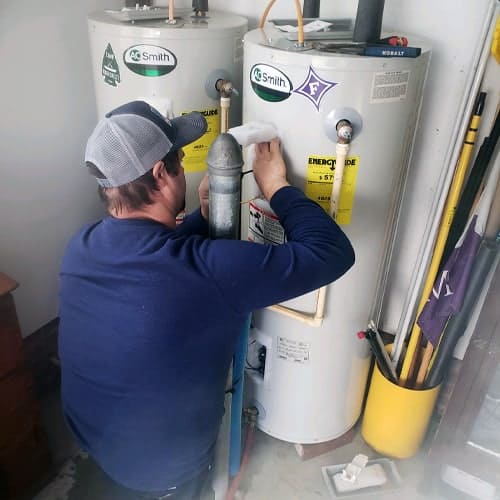Key Measures for Residential Property Owners Managing Faulty Water Heaters
Key Measures for Residential Property Owners Managing Faulty Water Heaters
Blog Article
How do you feel on the subject of What Do You Do When Your Water Heater Bursts??

Whether it is located in the basement or a different area, busted water heating units can trigger tension. Having no hot water supply is also troublesome.
Call the Plumber
After doing the first 2 safety steps, you need to call your plumber to come right away to take care of a ruptured water heating system. There are typically signs that your aging water heater has debris build-up in the interior.
Do not await significant flooding to call the plumber. By then, you will certainly have to spend even more to recover your residential or commercial property. Rather, as soon as you spot these signs, have an expert pertained to check your water heater storage tank. Normally, hot water heater have a life expectancy of concerning 8 to 12 years. With normal examination and upkeep, you can prolong its life.
Cut Off the Cold Water Supply
Cut off the containers faucet water supply from the source. This goes from your primary water line right into the storage tank. When your storage tank is in good condition, the cold water quits filling out when the container is full. Yet given that it is leaking, the water will certainly continue to stream. Shut the shutoff located on top of the heating system. Revolve this clockwise to close it off. If you can not find it or reach it, you need to turn off that main supply of water line outside your residential property.
Turn Off Power Source
Before calling the plumber, turned off a gas hot water heater by turning the temperature level dial. This is typically found on top of the thermostat. Switch over off the circuit breaker if you have a design that runs on electric power. This will avoid electrocution, particularly if there is a leak as water is a conductor. Commonly, the heating element turns off when the water strikes a particular temperature level. However with a busted tank, it may malfunction. Cutting it off ensures you remain secure.
Tidy up Building
After calling the plumber, paper damage by taking notes as well as images so you can claim your house owner's insurance policy. Get rid of any standing water to protect against mold and also mildew growth. If you have a completely submersible water pump, use that to drain the water.
Keep in mind, if you see any type of problems with your water heater, call the pros right now. You can not take this trouble lightly because a malfunctioning thermostat can elevate water temperature to a dangerously high level, bring about unintended burns. A broken heater pressure relief valve can also trigger an explosion. For finest results, get an annual check so your unit gets inspected, cleaned, drained pipes, as well as replenished, guaranteeing ideal performance.
After doing the very first two safety steps, you need to call your plumber to come right away to take care of a ruptured water heating system. Rather, as quickly as you find these signs, have actually a specialist come to check your water heating unit tank. Before calling the plumber, closed off a gas water heating unit by turning the temperature level dial. If you have a completely submersible water pump, use that to drain the water. Bear in mind, if you see any kind of problems with your water heater, call the pros right away.
When You Should Turn off Your Water Heater
When the main water supply is shut off
There are many circumstances in which the main water supply is turned off. When this happens, many homeowners wonder if it’s safe to keep the water heater on of it should be shut down too.
In most cases, it may not be necessary to turn off the water heater, but it also won’t hurt, either. However, there are two reasons when you should turn off the unit to prevent too much pressure or heat from building up inside the tank:
When there’s a leak
If your water heater springs a leak due for a variety of reasons, including age or a valve malfunction, you should always turn off the unit and shut off the water supply until the issue is resolved.
https://www.libertyplumbingheatingandair.com/blog/when-you-should-turn-off-your-water-heater/

I am very inquisitive about Broken Water Heaters and I'm hoping you enjoyed reading the entire blog entry. Enjoyed our posting? Please share it. Let someone else locate it. Thanks for your time. Come back soon.
At This Website Report this page